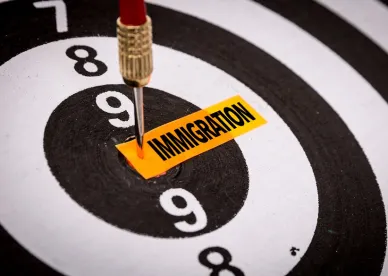Yesterday, 23 law professors were granted permission to participate as amici curiae in a class action lawsuit contesting a recent U.S. Citizenship and Immigration Services (USCIS) policy change affecting minors in New York who seek Special Immigrant Juvenile Status (SIJS). This policy change has resulted in SIJS denials for immigrant children who would otherwise qualify for SIJS based on well-established state and federal law.
SIJS is a form of immigration relief that provides unmarried children under age 21 with a path to citizenship if they can provide a determination from a state juvenile court that they are dependent on the court or are committed by the court to the custody of a State entity or an individual; that reunification with one or both parents is not viable due to abuse, neglect, abandonment, or a similar basis under state law; and that it is not in their “best interest” to return to their country of origin.
Amici law professors filed a brief in support of plaintiffs, a class of immigrant juveniles to whom USCIS denied SIJS because they were between the ages of 18 and 21 when the New York Family Court (“Family Court”) issued their SIJS findings, even though applications for juvenile immigrants between those ages had previously and routinely been granted such status. Specifically, USCIS is claiming now that the Family Court lacks jurisdiction over minors 18 and above to make decisions regarding their care and custody or reunification with their parents.
The law professors’ amicus brief begins by providing an overview of the Family Court’s jurisdiction as defined by the relevant state statutes. The brief demonstrates that not only do the relevant state statutes empower the Family Court with broad discretion in dealing with all family law issues, but the Family Court also has authority under state law to make each of the individual SIJS findings. Next, the brief addresses the various types of family court proceedings in which the New York Family Court has the power to make decisions regarding the custody and care of minors ages 18 to 21, including guardianship, which is akin to lawful custody. Finally, the brief describes the Family Court’s authority to reunify minors with their parents, as well as its authority to enjoin such reunification for minors between the age of 18 and 21.




 />i
/>i

